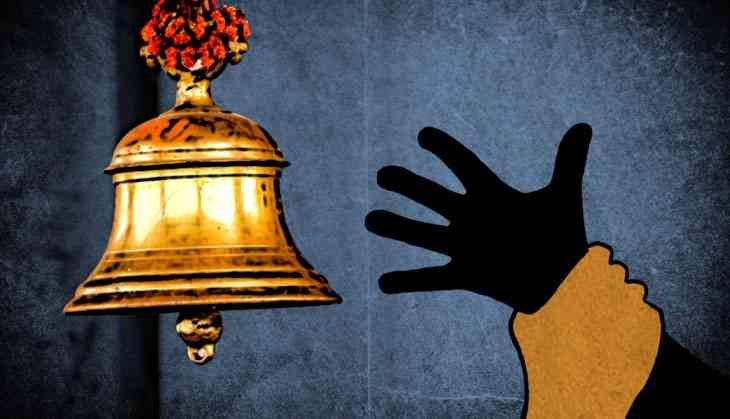In 'vibrant' Gujarat, Dalits donate money for temple but are barred from it

In 'vibrant' Gujarat, the home state of Prime Minister Narendra Modi, the age-old faultlines in society are showing up again and again.
While this time things weren't as bad as the incident of Dalits being flogged at Una last year, a fresh incident has once again reminded all concerned that in villages, Dalits still remain outcasts and untouchables, despite the Sangh Parivar's stated intent to bring Hindus of all castes under one umbrella.
The incident
The incident occurred in Boridra village of Bharuch district, where Dalits were asked to keep away from a temple ceremony for which they had also contributed generously. The village has population of about 1,500 of which around 12 families belong to the Dalit community.
A new idol was to be installed at the Mahadev temple on 2 April. But when some Dalits expressed their willingness to join the ceremony with the upper castes, one of the temple trustees said they could not be allowed to offer puja.
One of the Dalits who wanted to take part in the ceremony, Manoj Chauhan, reported the matter to the police and other authorities. As a result, the temple trustees unilaterally decided to postpone the ceremony, without consulting or informing the village sarpanch.
The allegations
Sanmukh Parmar, another Dalit from the village, said: “When we approached the main trustee of the temple, Narottam Patel, he told us that Dalits could not be allowed in the ceremony as it was an age-old tradition.”
All the villagers had contributed for the renovation and puja ceremony, but the Dalits were told that only members of the upper castes were entitled to sit for the puja, which angered them.
Thereafter, the Dalits approached the deputy sarpanch of the village, Pradyuman Patel, but he was helpless, and not in a position to challenge the trustee, who happens to be from the dominant Koli community.
Narottam Patel then pretended to be ill and got himself hospitalised, so that the ceremony could be postponed, Parmar alleged.
On the eve of Puja, with Patel in hospital, other organisers decided to postpone the ceremony. But Dalits complained to the police and also contacted their local leaders in Bharuch town, who visited the village to get an on-the-spot assessment.
RSS on the back foot
Sensing trouble, RSS leaders, who have been propagating harmony and brotherhood, rushed to the village to facilitate a reconciliation. Gujarat's social welfare minister, Atma Ram Parmar, has been monitoring the situation from Gandhinagar, seeking updates from officials.
“We will not allow the ceremony to take place unless Dalits are allowed to participate,” said the minister.
Dalit activist Jayanti Makadia said Dalits consider themselves Hindus, so obviously, they felt insulted when they were not allowed to participate in the ceremony.
“Dalits declare themselves Hindus in their school certificates, and then they are asked to not attend the puja, a Hindu ritual. It hurts their pride,” he said.
However, Dalit writer-activist Kishor Makwana, who owes his allegiance to the RSS, claimed that what happened in the Boridra was just an aberration. “We are all for social harmony. We want one common temple, common well and common cremation ground for all the caste and communities in each village. This is our slogan.”
Gaurang Jani, a sociologist who teaches at the Gujarat University, argued that if that was the case, “nothing prevents the RSS from organising temple entry for Dalits wherever their entry is banned. But the RSS would not do that, not even as a symbolic gesture”.
Jani went on to say that while the Sangh Parivar wants a Ram temple to be built in Ayodhya, Dalits will not even be allowed into a village temple. “And yet they wants Dalits to be in the Hindu fold. That's really ironic,” he said.
BJP spokesman Bharat Pandya said he did not consider the Boridra incident a social crime, but a village-specific tradition which “we cannot justify, but cannot condemn it either”.
It only shows particular feudal mentality that still exists in our villages. It is a symptom – it certainly shows a lack of social harmony in a state marketed as the most 'vibrant' in the country.
First published: 8 April 2017, 14:10 IST
